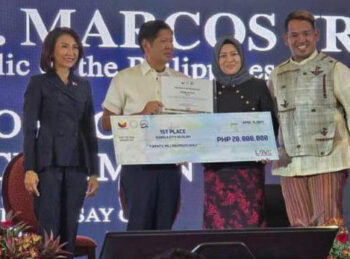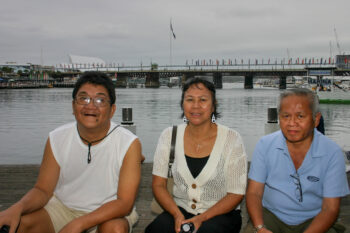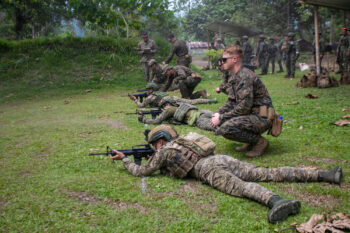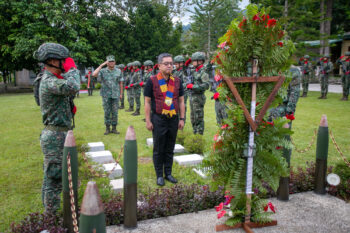QUEZON CITY (MindaNews/13 April) — This is the last and final part of the four-part series presenting excerpts of the paper Extraordinary Measures: Constitutional Powers in Times of Crisis. It deals with the Estrada and Arroyo experiences on emergency powers.
Estrada Presidency
Estrada’s short tenure in office was not without its share of emergency powers in action. In 2000, an alarming increase in violent crimes in the capital region led the President to order the deployment of 500 Marines to conduct joint visibility patrols alongside the members of the Philippine National Police for the purpose of crime prevention. The President reasoned that the augmentation from the military is necessary to heighten police visibility in the metropolis, invoking his commander-in-chief powers under Article VII, Section 18 of the Constitution. There was opposition to this move, stating that the specific character of military discipline and the Marines’ brand of combat training are inappropriate to the requisites of civilian peacekeeping. There were also fears that the mere presence of soldiers might create a martial law climate.
Consequently, the Integrated Bar of the Philippines filed a petition before the Supreme Court, asking it to nullify the presidential order on the ground of lack of factual basis. According to the IBP, no emergency exists that would justify the need for the calling of the military to assist the police force. It contends that no lawless violence, invasion or rebellion exist to warrant the calling of the Marines.
The Court denied the petition in IBP v. Zamora, stating that there is a clear textual commitment under the Constitution to give the President full discretionary power to call out the armed forces and to determine the necessity for the exercise of such power.
Arroyo Presidency
That the Arroyo presidency was extraordinarily installed by a popular uprising that forced a sitting president to resign seemed to be a foreboding of things to come. Not less than three major public disturbances occurred in a span of five years, the most recent of which resulted to the now infamous Proclamation No. 1017, with all the allusions to its more ominous predecessor Proclamation No. 1081 which imposed martial law.
The first instance was on May 1, 2001, during the Labor Day celebrations. Thousands of supporters of deposed President Joseph Estrada gathered in EDSA and later on attempted to break into Malacanang.
The second time was during the so-called Oakwood Mutiny on July 27, 2003. Bewailing the endemic corruption in the military, several hundred disgruntled junior officers stormed into the posh Oakwood hotel in the heart of the country’s financial district and demanded the resignation of the President, among other officials. After several hours of standoff, the President issued Proclamation No. 427, which declared a state of rebellion and invoked her commander-in-chief powers to call on the Armed Forces and the Philippine National Police to suppress and quell the ongoing rebellion.
The Proclamation was again questioned before the Supreme Court. In Sanlakas v. Executive Secretary, the Court held that the Constitution does not prohibit the President from declaring a state of rebellion and that in calling out the armed forces, such declaration is a superfluity. More importantly, it firmly established the doctrine first laid down in IBP v. Zamora that the requirements of 1) actual invasion or rebellion and 2) public safety requires the exercise of such power, does not apply to the calling out power of the President, but only to the other two martial law powers, namely the power to suspend the privilege of the writ and the power to declare martial law. In fact, the only criterion is that the President deems it necessary to prevent such violence or rebellion. The ruling gave the President a lot of leeway when it comes to the exercise of such power.
The President then invoked the calling out power once again and issued Proclamation No. 1017 on February 24, 2006, the 20th anniversary of the EDSA People Power I revolution. Citing a tactical alliance of the right and left to overthrow the government, the Proclamation declared a State of Emergency and yet again, called upon the Armed Forces and the Philippine National Police, to prevent and suppress acts of terrorism and lawless violence, pursuant to the President’s constitutional commander-in-chief powers.
The Supreme Court again upheld the President’s exercise of the calling-out power in David v. Arroyo, stating that the petitioners were not able to show that the President was bereft of any factual basis when she made the issuance. The Court asserted its constitutional role as final arbiter when it pronounced that while the calling-out power is by and large a discretionary power solely vested on the President’s wisdom, “this does not prevent an examination of whether such power was exercised within permissible constitutional limits or whether it was exercised in a manner constituting grave abuse of discretion,” yet again affirming the doctrine laid down in IBP.
Nevertheless, it must be noted that these Proclamations, while seemingly innocuous as mere descriptions of an ongoing event, have all at one time or another caused jitters in the business community, sowed confusion among the citizenry, became sources upon which foreign governments issue travel advisories to its citizens and more often than not, became legal cover for overeager authorities to effect warrantless arrests.
Postscript. President Arroyo’s presidency was one of the most tumultuous among all presidencies, this to a large extent because of overwhelming perception that she abused her power and committed , together with her cohorts, massive anomalies in government. Currently she is being detained for plunder and election sabotage.(MindaViews is the opinion section of MidnaNews. Dean Tony La Viña is a human rights and environmental lawyer from Cagayan de Oro City. He was a member of the Government of the Philippines Peace Panel that negotiated with the MILF from January to June 2010. He is currently the Dean of the Ateneo School of Government. Dean Tony can be reached at Tonylavs@gmail.com. Follow him on Facebook: tlavina@yahoo.com and on Twitter: tonylavs)







